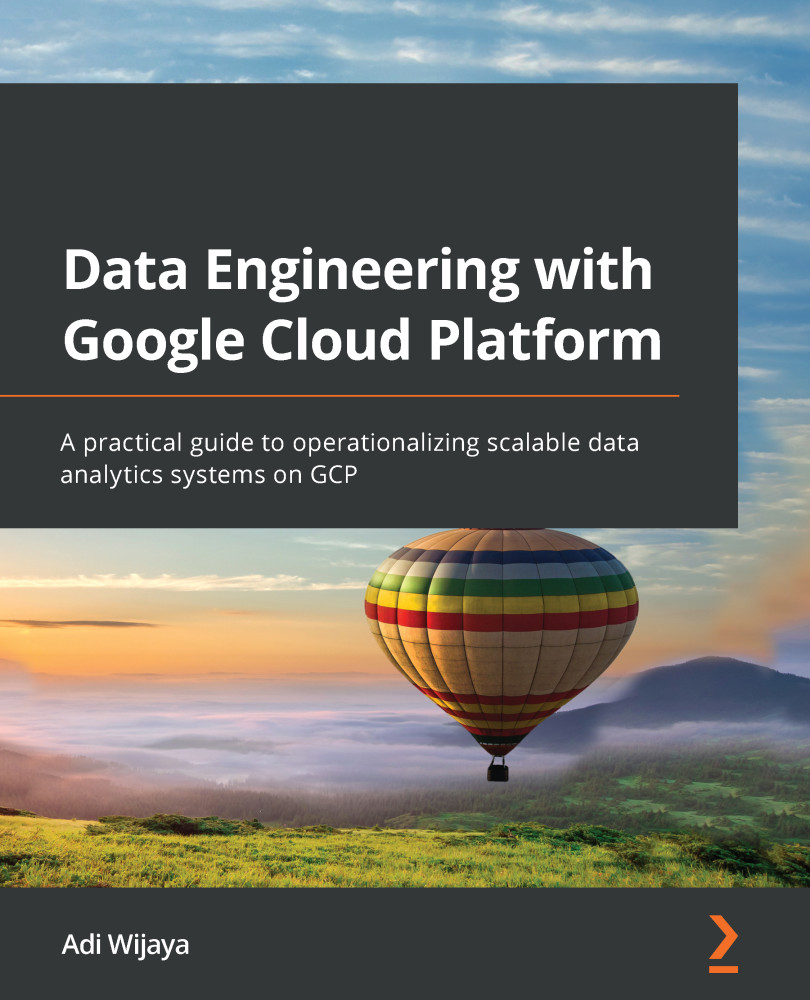-
Book Overview & Buying

-
Table Of Contents

Data Engineering with Google Cloud Platform
By :

Data Engineering with Google Cloud Platform
By:
Overview of this book
With this book, you'll understand how the highly scalable Google Cloud Platform (GCP) enables data engineers to create end-to-end data pipelines right from storing and processing data and workflow orchestration to presenting data through visualization dashboards.
Starting with a quick overview of the fundamental concepts of data engineering, you'll learn the various responsibilities of a data engineer and how GCP plays a vital role in fulfilling those responsibilities. As you progress through the chapters, you'll be able to leverage GCP products to build a sample data warehouse using Cloud Storage and BigQuery and a data lake using Dataproc. The book gradually takes you through operations such as data ingestion, data cleansing, transformation, and integrating data with other sources. You'll learn how to design IAM for data governance, deploy ML pipelines with the Vertex AI, leverage pre-built GCP models as a service, and visualize data with Google Data Studio to build compelling reports. Finally, you'll find tips on how to boost your career as a data engineer, take the Professional Data Engineer certification exam, and get ready to become an expert in data engineering with GCP.
By the end of this data engineering book, you'll have developed the skills to perform core data engineering tasks and build efficient ETL data pipelines with GCP.
Table of Contents (17 chapters)
Preface
Section 1: Getting Started with Data Engineering with GCP
 Free Chapter
Free Chapter
Chapter 1: Fundamentals of Data Engineering
Chapter 2: Big Data Capabilities on GCP
Section 2: Building Solutions with GCP Components
Chapter 3: Building a Data Warehouse in BigQuery
Chapter 4: Building Orchestration for Batch Data Loading Using Cloud Composer
Chapter 5: Building a Data Lake Using Dataproc
Chapter 6: Processing Streaming Data with Pub/Sub and Dataflow
Chapter 7: Visualizing Data for Making Data-Driven Decisions with Data Studio
Chapter 8: Building Machine Learning Solutions on Google Cloud Platform
Section 3: Key Strategies for Architecting Top-Notch Data Pipelines
Chapter 9: User and Project Management in GCP
Chapter 10: Cost Strategy in GCP
Chapter 11: CI/CD on Google Cloud Platform for Data Engineers
Chapter 12: Boosting Your Confidence as a Data Engineer
Other Books You May Enjoy
